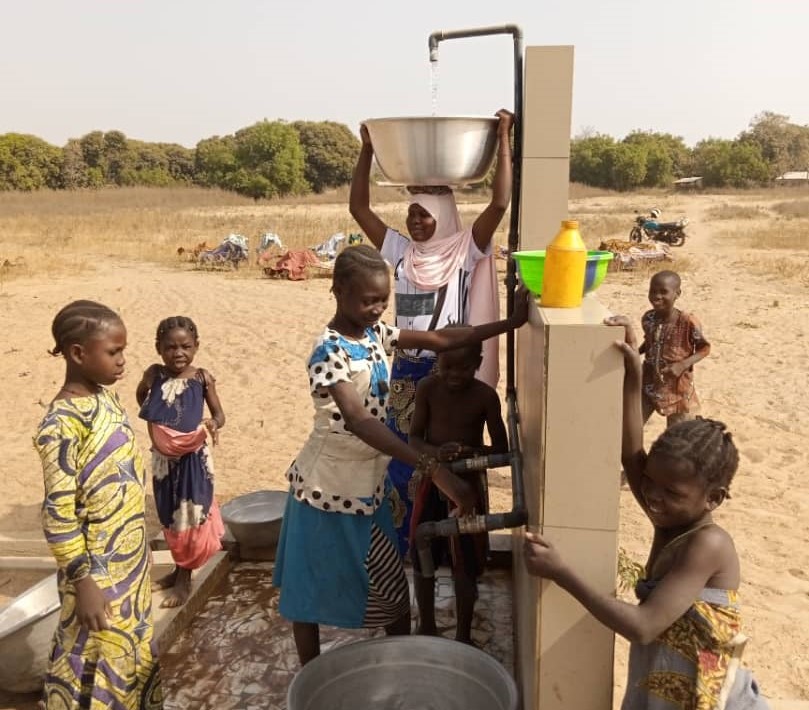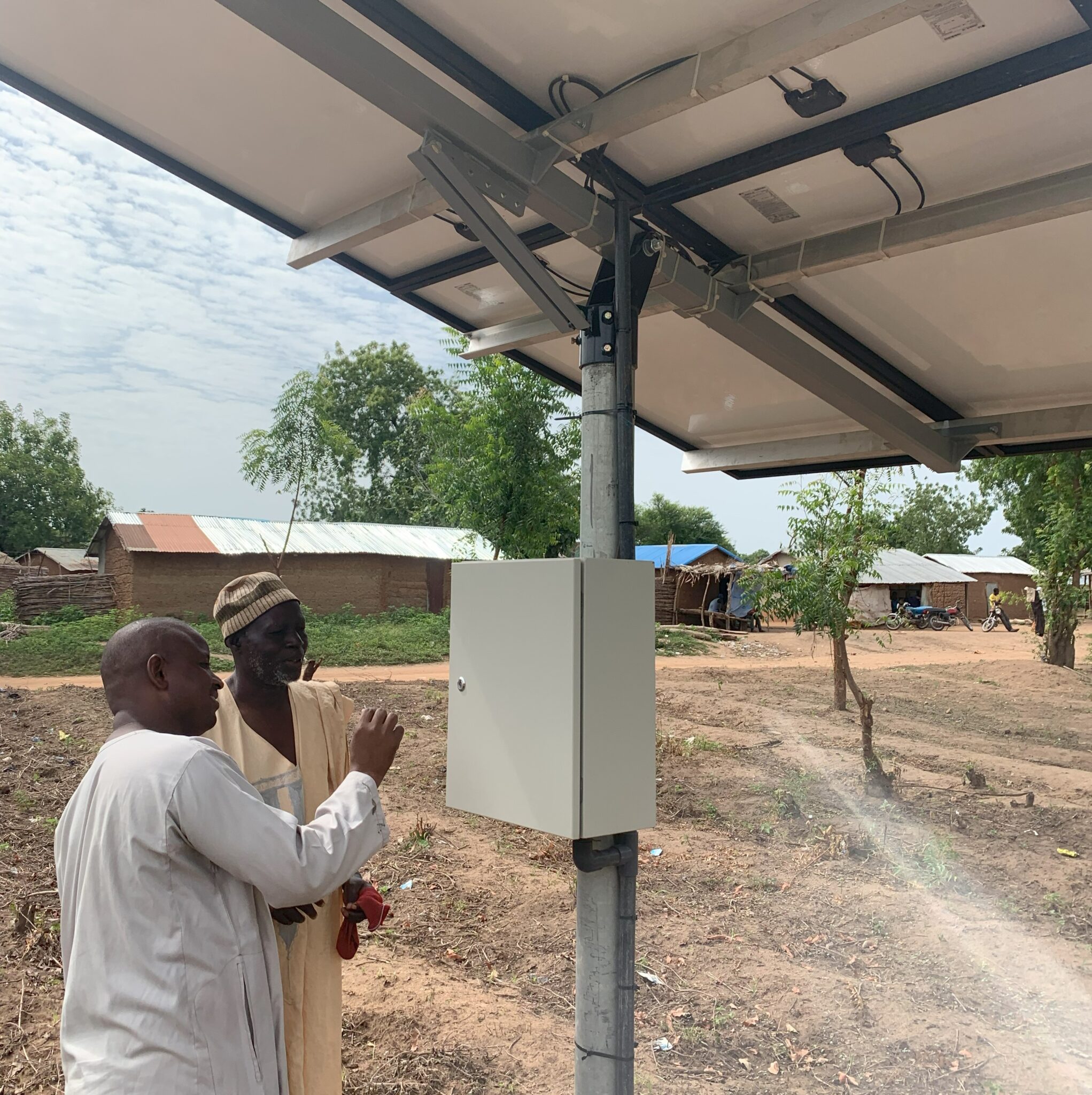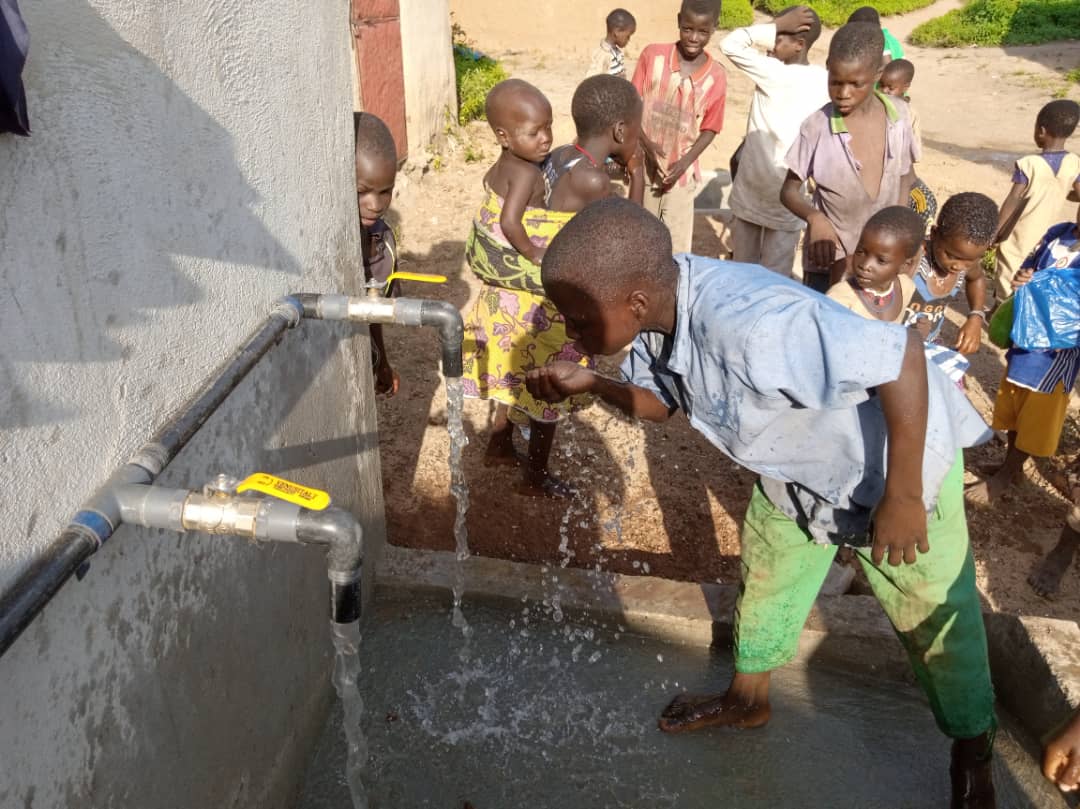Solar Power Boosts Clean Water and Vaccine Access for 40,000 in West Africa



Solar Goes Where the Grid Won’t, Driving Better Health Outcomes for Rural Communities
WASHINGTON, August 15, 2023 — In the Kalalé District of Benin, West Africa, basic health services are hard to come by. Historically, a lack of electrical infrastructure in this region has meant no power to pump clean water or refrigerate vaccines. That has now changed due to a recently completed project by the Solar Electric Light Fund (SELF), with funding from the Millennium Challenge Corporation (MCC)—an independent U.S. foreign assistance agency—along with other donors, and in collaboration with MCC’s counterpart in Benin, the Millennium Challenge Account. Across the district, 24 solar-powered water pumps and five solar-powered vaccine refrigerators have been installed, now operational and serving the people of Kalalé.
“In the past we suffered a lot to get water. This was a major problem for us,” says Koulou Démon, a Kalalé District resident. “We are praying for other communities to get the same system to alleviate their water scarcity issues.”
Prior to installation, Ms. Démon and other district residents would have to spend hours—often walking long distances—to collect sufficient water for their families every day. This common task traditionally falls on women and girls in areas without direct water access. Not only is this costly in terms of time and labor, but there is no way to know if the water gathered is even safe to drink.
“Water access meets many fundamental needs of course,” says Dr. Cardinal Akpakpa, a physician in the Kalalé District village of Gberougbassi. “Reliable access to clean water will not only improve hygiene measures, but it is also critical for the prevention of waterborne diseases.”
Both clean water and vaccinations are vital for improving local health. Waterborne illness is a leading cause of death in Benin, and only 58% of children in the country are considered fully immunized. The new solar infrastructure will help the people of the Kalalé District defy those statistics.
“As a society, we don’t often think about lack of electricity as an underlying cause of health disparities,” says Robert Freling, SELF’s executive director. “You can provide all the vaccines in the world, but if a clinic doesn’t have the ability to refrigerate them, it doesn’t matter. Electricity is a prerequisite for healthy communities.”
In a world where one in eight people rely on unelectrified or under-electrified health facilities for care, and where one in four lack access to clean drinking water, solar energy is increasingly filling the gap. Solar can be particularly lifesaving for rural communities that are not connected to a traditional electric grid. In the case of Benin, extending the power grid past urban centers can be prohibitively expensive, leaving entire villages in the dark. Distributed solar energy systems, on the other hand, can be set up virtually anywhere and provide a steady stream of power for a variety of household or community needs.
“The Millennium Challenge Corporation invests in country-led solutions that reduce poverty and foster economic growth,” says Jason Bauer, director of finance, investment and trade at MCC. “This investment helps address health constraints that bind economic growth for thousands of people in the Kalalé District, while adapting to growing climate challenges.”
For this project, a solar array was hooked up to a water pump in each of the 24 villages. During daylight hours, the pump draws water from an underground source into an elevated reservoir. The water is then gravity-fed to a distribution station, where local people can access it. A small, affordable fee is charged for water, which will cover repairs indefinitely. Because these systems are direct-drive (i.e., battery-free), maintenance needs are minimal.
The vaccine refrigerators are direct-drive as well. This improves reliability, but the lack of a battery also means there’s no way to store surplus power generated during peak sunlight hours. To make good use of this electricity, the refrigerators are equipped with an energy harvest control (EHC) mechanism. The EHC diverts surplus energy to charge ancillary devices in the clinic, such as battery-operated lights or cell phones. As an additional measure of accessibility surrounding the five clinics, solar-powered streetlights were installed to help light the way for patients at night.
This project builds on SELF’s past work in the Kalalé District. SELF’s Solar Market Garden model, which uses solar-powered drip irrigation to empower women’s farming collectives, is currently deployed across ten villages and won the United Nation’s Momentum for Change Lighthouse Award at COP21. SELF has powered additional community resources in the region, including schools, micro-enterprise centers and more.
About the Solar Electric Light Fund (SELF)
The Solar Electric Light Fund (SELF) is a Washington, D.C.-based non-profit that uses solar energy to fight poverty and climate change. Since its founding in 1990, SELF has worked in dozens of countries, bringing clean energy where it’s needed most. Whether powering schools in South Africa, or health clinics in Haiti, SELF uses the power of the sun to drive lasting change. Learn more at: www.self.org
About the Millennium Challenge Corporation (MCC)
The Millennium Challenge Corporation is an independent U.S. government development agency working to reduce global poverty through economic growth. Created in 2004, MCC provides time-limited grants that pair investments in infrastructure with policy and institutional reforms to countries that meet rigorous standards for good governance, fighting corruption and respecting democratic rights.

SELF is a global leader in the fight against energy poverty. Since 1990, we’ve pioneered unique applications for solar energy, powering progress on food security, health care, education, gender equity, and more.
501(c)(3) non-profit organization
EIN: 52-1701564